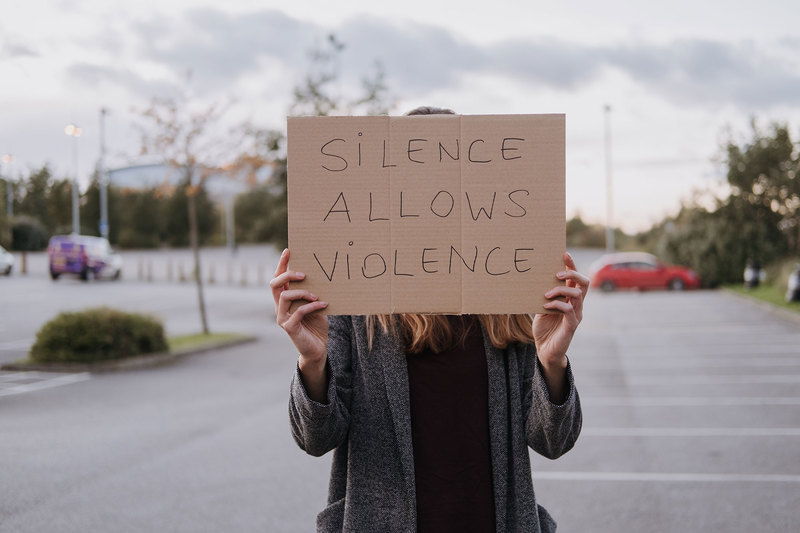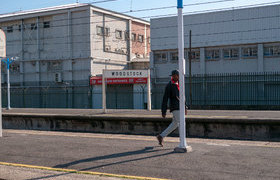UCT to house South Africa’s first youth violence-prevention centre
01 June 2023 | Story Niémah Davids. Photo Pexels. Voice Cwenga Koyana. Read time 5 min.
University of Cape Town (UCT) student and community activist Zukile Ntentema has set the wheels in motion to establish the first youth violence-prevention centre on home soil. This example of an anti-crime initiative successfully adopted in the Global North will be housed at UCT, and will support government, law enforcement agencies and civil society to effectively monitor crime trends in the Mother City, and to inform new, targeted crime prevention strategies aimed at the youth.
With the help of volunteers, the centre will develop Afrocentric, evidence-based strategies and interventions to fight crime and help make the city a safer place. Ntentema has already discussed his idea with UCT’s interim vice-chancellor, Emeritus Professor Daya Reddy, who has given him the green light to start conversations to establish the centre at UCT. The university’s deputy vice-chancellor for Transformation, Student Affairs and Social Responsiveness, Professor Elelwani Ramugondo, has also committed to supporting him throughout the programme’s multiple stages.
“Crime is a monumental problem in our country and plagues the youth living in marginalised communities in many ways. We can’t just look to government to sort it all out; it’s our social responsibility to lend a helping hand. Establishing this centre is one way of mobilising different sectors of society, and through that partnership, witnessing the change that we desperately need,” Ntentema said.
Crime-prevention centre
Monitoring crime levels in the metropole, predicting if and when new incidences are likely to occur, and developing targeted crime-prevention strategies aimed at the youth living in dangerous communities on the Cape Flats is at the core of the centre’s work. Ntentema stated that the centre will partner with non-governmental organisations, community policing forums and other stakeholders working in hard-hit communities to execute this mandate successfully and to address the crime scourge.
“The crime prevention centre will draw on the expertise of law enforcement, government and civil society, because everyone has a role to play.”
“We need a united front to address crime in South Africa. The crime prevention centre will draw on the expertise of law enforcement, government and civil society, because everyone has a role to play. We will assess the current crime-prevention initiatives out there, evaluate what works and what doesn’t, and collectively come up with new ideas on how to make our communities safe,” he said.
A space to collaborate
The goal, Ntentema said, is for the centre to act as a space where volunteers can collaborate specifically to develop empirical Afrocentric approaches to addressing crime, share resources and ideas, and document their progress in their quest to build safer communities. Afrocentric interventions, he explained, place special emphasis on African values, experiences and cultures.
“Developing Afrocentric techniques that can deal with violent crime and can serve as the go-to for government and other stakeholders as they work towards reducing crime among the youth is a crucial starting point. We also need to abandon those ineffective Eurocentric methods we’ve been using that have clearly not been beneficial, because crime is on the increase,” Ntentema said.
After receiving the support of both Emeritus Professor Reddy and Professor Ramugondo, the hard work begins. Ntentema will now engage with other academics at UCT who work in the field of violence prevention, as well as undergraduate and postgraduate students, to help get the centre off the ground. In addition, he said, he also plans to canvass academics and students at other universities to get involved in the project.
Partners in fighting crime
Ntentema is confident that establishing the centre is an important step towards fighting crime in the city and has already joined forces with the South African Police Services youth desk, the Western Cape Government and the City of Cape Town for them to contribute to his initiative in meaningful ways.
“Ours will be a first for South Africa, which is very exciting, and I’m confident it will make the difference we need.”
“When we are up and running, we want to work towards creating violence-prevention interventions that have been rigorously evaluated to guide government policies in the future. Centres like this one are already running successfully at several universities in the United States, including Harvard and Johns Hopkins University. Ours will be a first for South Africa, which is very exciting, and I’m confident it will make the difference we need,” he said.
 This work is licensed under a Creative Commons Attribution-NoDerivatives 4.0 International License.
This work is licensed under a Creative Commons Attribution-NoDerivatives 4.0 International License.
Please view the republishing articles page for more information.










